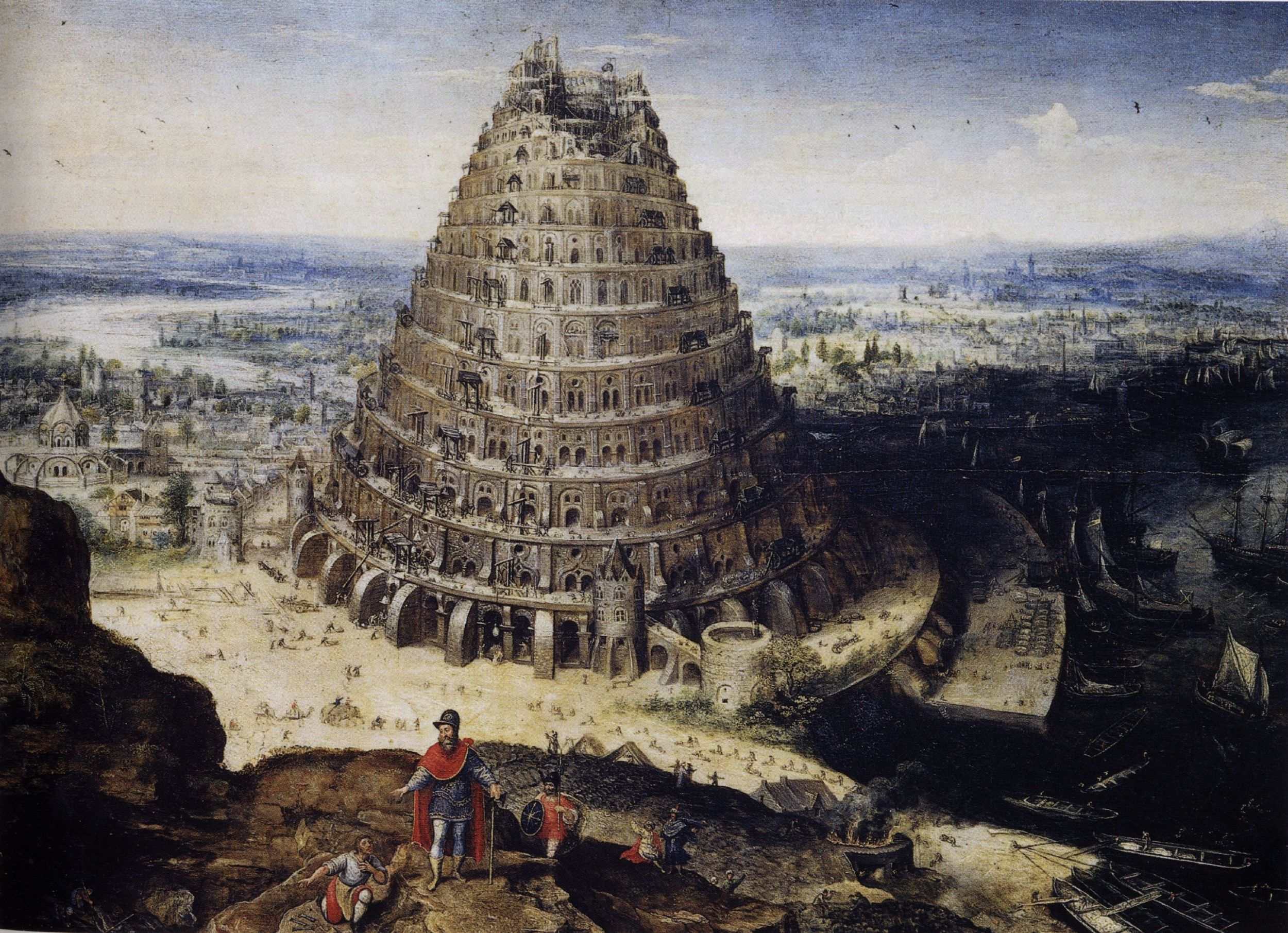|
Then they said, "Come, let us build ourselves a city and a tower with its top in the heavens, and let us make a name for ourselves, lest we be dispersed over the face of the whole earth."
Genesis 11:4
|
|
The account of the Tower of Babel is at once fascinating and highly significant, for it results in the scattering of people, the proliferation of languages and the formation of nations. Before Babel, "The whole earth had one language and the same words" (11:1).
What happens? The people, moved by pride and fear, band together to build a vast tower that will reach into the heavens. We see their pride in their grandiosity, in their desire for fame and in their rebellion against God. We see their fear because they are afraid of being scattered. Rather than trusting in a loving God to protect them and watch over them they put their trust in one another.
God's response is strong. Man proposes but God disposes. He confuses their speech and scatters them over all the earth because if they stay together their potential for multiplied wickedness is simply too great. The tone of God's response is not that of a rival's jealousy but that of a father's concern. God takes radical measures for their sake.
The Tower of Babel stands forever in our memory as a warning against human pride and self-reliance. Those who exalt themselves, God is well able to humble. And humble he will.
Their greatest strength, their unity, God destroyed. Their greatest desire, fame, led to infamy. Their greatest fear, scattering, was realized. This is what happens when we rely upon our own ingenuity and upon our own efforts.
By the way, the city of Babel, or Babylon, came to represent rebellion against God, just as Jerusalem came to represent God's people. The Old Testament prophets spoke of God's judgment upon Babylon. In modern times Saddam Hussein had plans to rebuild Babylon. And in revelation 17-18, the climax for Babylon will come with terrible destruction on a rebellious kingdom.
|
